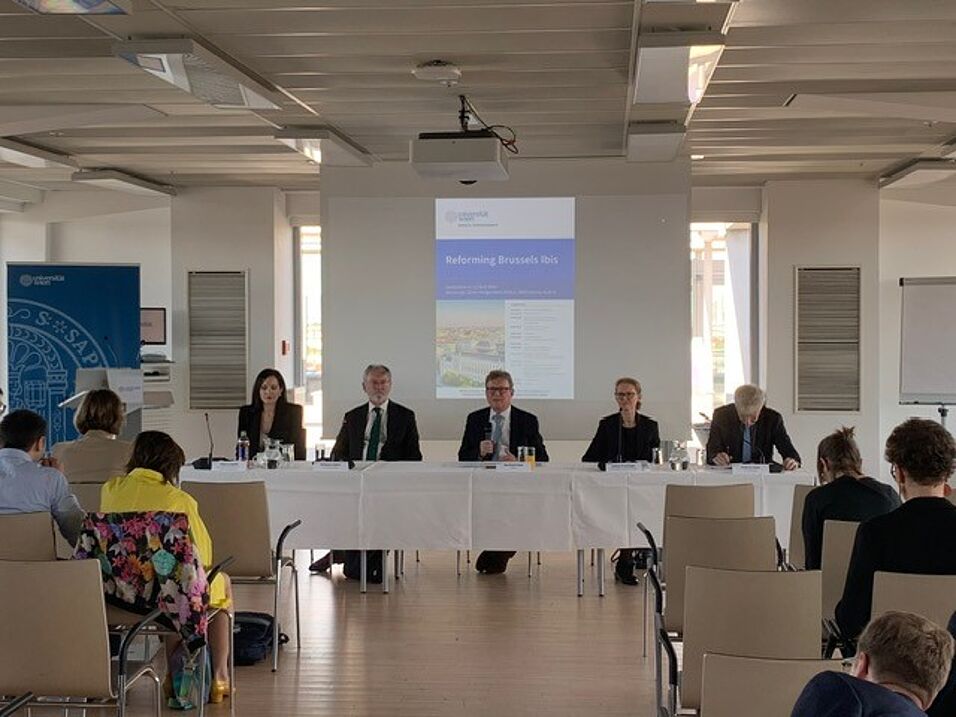On 12 April 2024, a hybrid conference took place at the Skylounge of the University of Vienna to discuss the reform of the Brussels Ibis Regulation; the fundamental reference-instrument of cross-border judicial cooperation in civil matters within the European Union. The reform is expected to begin this year under the new European Commission. The conference was organised by the Institute for Civil Procedural Law and continued the work already done within the European Association for Private International Law (EAPIL) and the former Max Plack Institute (MPI) Luxembourg.
In the morning, the prospects of the reform process and overarching issues of the Brussels Ibis Regulation were addressed by Andreas Stein (EU Commission), Astrid Stadler (Konstanz), Cristina González Beilfuss (Barcelona), Gilles Cuniberti (Luxembourg), as well as Karol Weitz and Bartosz Wołodkiewicz (Warsaw). The various proposals for the reform of the Brussels Ibis Regulation were addressed from a practical perspective in the afternoon during a roundtable featuring, inter alia, Anthony Collins (EU Court of Justice), Georg Kodek (Austrian Supreme Court), Petra Leupold (VKI), Sabine Leupold (Freshfields Bruckhaus Deringer) and Andreas Stein (EU Commission). The discussions were moderated by Paul Oberhammer, Christian Koller and Burkhard Hess of the Institute for Civil Procedural Law. The conference was attended by over 140 participants.
In preparation for the conference, Burkhard Hess and his team distributed a draft working paper amongst the participants that outlined specific proposals for the reform of the Brussels Ibis Regulation and served as a basis for discussion. The findings of the conference into an Academic Position Paper, which cover the role and scope of the Brussels Ibis Regulation, collective redress, third-state relations, jurisdiction and pendency, as well as recognition and enforcement. The Academic Position Paper was presented to the EAPIL during its general assembly in Poland on 7 June 2024 and is now available on SSRN. The proposals in the Academic Position Paper provide a solid set of recommendations to consider in reforming the Brussels Ibis Regulation, which will be presented to the European Commission as a meaningful contribution of academia in the upcoming law-making process.

